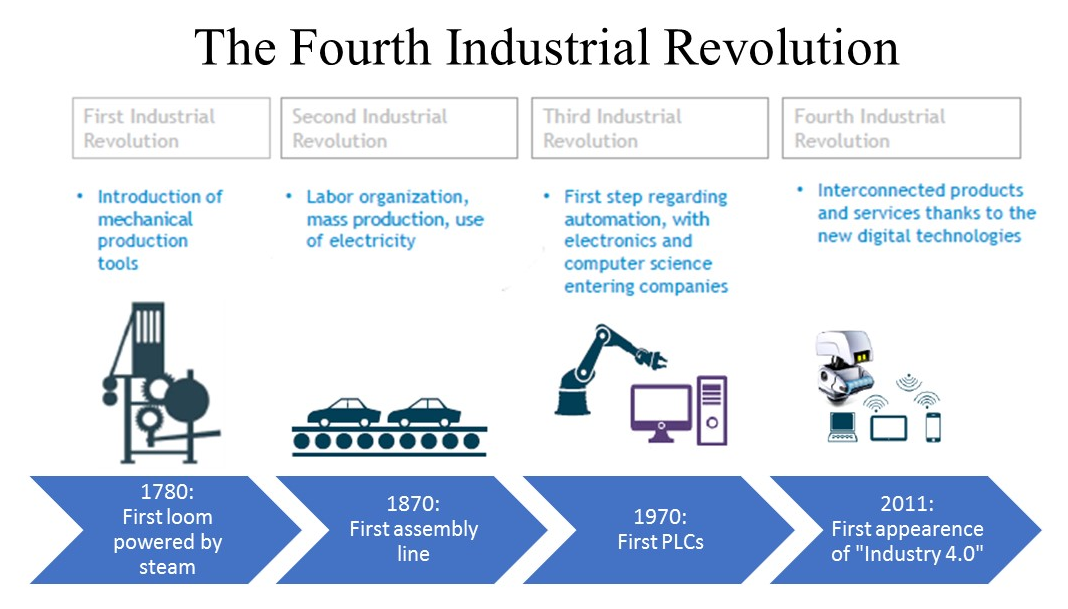After the advent of the steam engine in 1760, steam was used to power everything from agriculture to textile manufacturing. This caused the First Industrial Revolution and the age of mechanical production. At the end of the 19th century came the arrival of electricity, new modes of labor organization, and mass production, which started the Second Industrial Revolution. In the second half of the 20th century, the development of semiconductors and the introduction of electronic controllers produced the beginning of the automation era and the Third Industrial Revolution. In the Hannover exhibition of 2011, Henning Kagermann, Wolf-Dieter Lukas, and Wolfgang Wahlster coined the term Industry 4.0 for the project of renewing the German manufacturing system using the capabilities of the latest digital technology:

Industry 4.0 is expected to be able to do the following:
- Connect or merge production with information and communication technology
- Merge customer data with machine data
- Harness the capability of machines communicating with machines
- Manage production autonomously in a flexible, efficient, and resource-saving manner
The IoT is almost, by definition, the key for further development of the manufacturing industry by including technologies such as big data analytics, the cloud, robotics, and most importantly, the integration and convergence between IT and OT.
Generally speaking, the term I-IoT refers to the industrial subset of the IoT. The I-IoT, like the IoT, is not just a specific new technology, but instead refers to the whole chain of value of a product. Similarly, the I-IoT impacts all sectors of the industrial world by significantly modifying the processes at each stage of the life cycle of a product, including how it is designed, made, delivered, sold, and maintained. Like the IoT, we are just at the beginning of the I-IoT journey.
The I-IoT is expected to generate so much business value and have such a deep impact on human society that it is leading the Fourth Industrial Revolution.
This is according to Forbes:
- The global IoT market will grow from $157 billion in 2016 to $457 billion by 2020, attaining a compound annual growth rate (CAGR) of 28.5%
- Discrete manufacturing, transportation and logistics, and utilities will lead all industries in IoT spending by 2020, averaging $40 billion each




































































